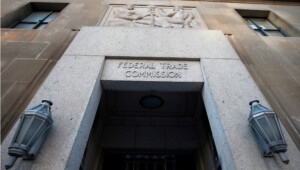What Did TV News Really Learn From 9/11?

World Trade Back In NYC Broadcast Picture
 Following 9/11’s destruction of the World Trade Center’s twin towers, New York’s TV stations moved their transmission facilities back to the Empire State Building, where they had been from their early days until the early 1980s. They’re likely to stay there, but management of the fast-rising 1 World Trade Center (pictured) is hoping to lure them back. This is the fourth in a TVNewsCheck series this week on how broadcasters responded to the terrorist attacks of Sept. 11, 2001, and how the attacks affected the business.
Following 9/11’s destruction of the World Trade Center’s twin towers, New York’s TV stations moved their transmission facilities back to the Empire State Building, where they had been from their early days until the early 1980s. They’re likely to stay there, but management of the fast-rising 1 World Trade Center (pictured) is hoping to lure them back. This is the fourth in a TVNewsCheck series this week on how broadcasters responded to the terrorist attacks of Sept. 11, 2001, and how the attacks affected the business.
For Pa. Crews, Biggest Story Of Their Lives
 Just before United Flight 93 went down near rural Shanksville, Pa., news staffers at stations in the Johnstown-Altoona market were like those at stations across the country. They were watching the images of the World Trade Center crash and trying to figure the local angle. Little did they know their local angle would consume their lives and coverage for days, and still resound 10 years later. This is the third in a TVNewsCheck series this week on how broadcasters responded to the terrorist attacks of Sept. 11, 2001.
Just before United Flight 93 went down near rural Shanksville, Pa., news staffers at stations in the Johnstown-Altoona market were like those at stations across the country. They were watching the images of the World Trade Center crash and trying to figure the local angle. Little did they know their local angle would consume their lives and coverage for days, and still resound 10 years later. This is the third in a TVNewsCheck series this week on how broadcasters responded to the terrorist attacks of Sept. 11, 2001.
NY, DC Stations Take Stock 10 Years After
 To commemorate the anniversary of the attacks, TV stations and cable news channels in New York and Washington are planning a host of special programs ranging from recollections to analysis of all that’s changed since 2001. The broadcast networks’ news departments also have a full plate of coverage planned. This is the second in a TVNewsCheck series this week on how broadcasters responded to the terrorist attacks of Sept. 11, 2001.
To commemorate the anniversary of the attacks, TV stations and cable news channels in New York and Washington are planning a host of special programs ranging from recollections to analysis of all that’s changed since 2001. The broadcast networks’ news departments also have a full plate of coverage planned. This is the second in a TVNewsCheck series this week on how broadcasters responded to the terrorist attacks of Sept. 11, 2001.
Running Toward Disaster: ‘It’s What We Do’

 This week, TVNewsCheck will be presenting a series a stories on how broadcasters responded to the terrorist attacks of Sept. 11, 2001, that killed nearly 3,000 and shocked the nation, how they were affected and how they plan to commemorate the 10th anniversary. The series begins today with the personal account of Carol Marin, then of CBS News, one of the many broadcast journalists who instinctively went to where the news was happening despite the obvious dangers. See below.
This week, TVNewsCheck will be presenting a series a stories on how broadcasters responded to the terrorist attacks of Sept. 11, 2001, that killed nearly 3,000 and shocked the nation, how they were affected and how they plan to commemorate the 10th anniversary. The series begins today with the personal account of Carol Marin, then of CBS News, one of the many broadcast journalists who instinctively went to where the news was happening despite the obvious dangers. See below.










































